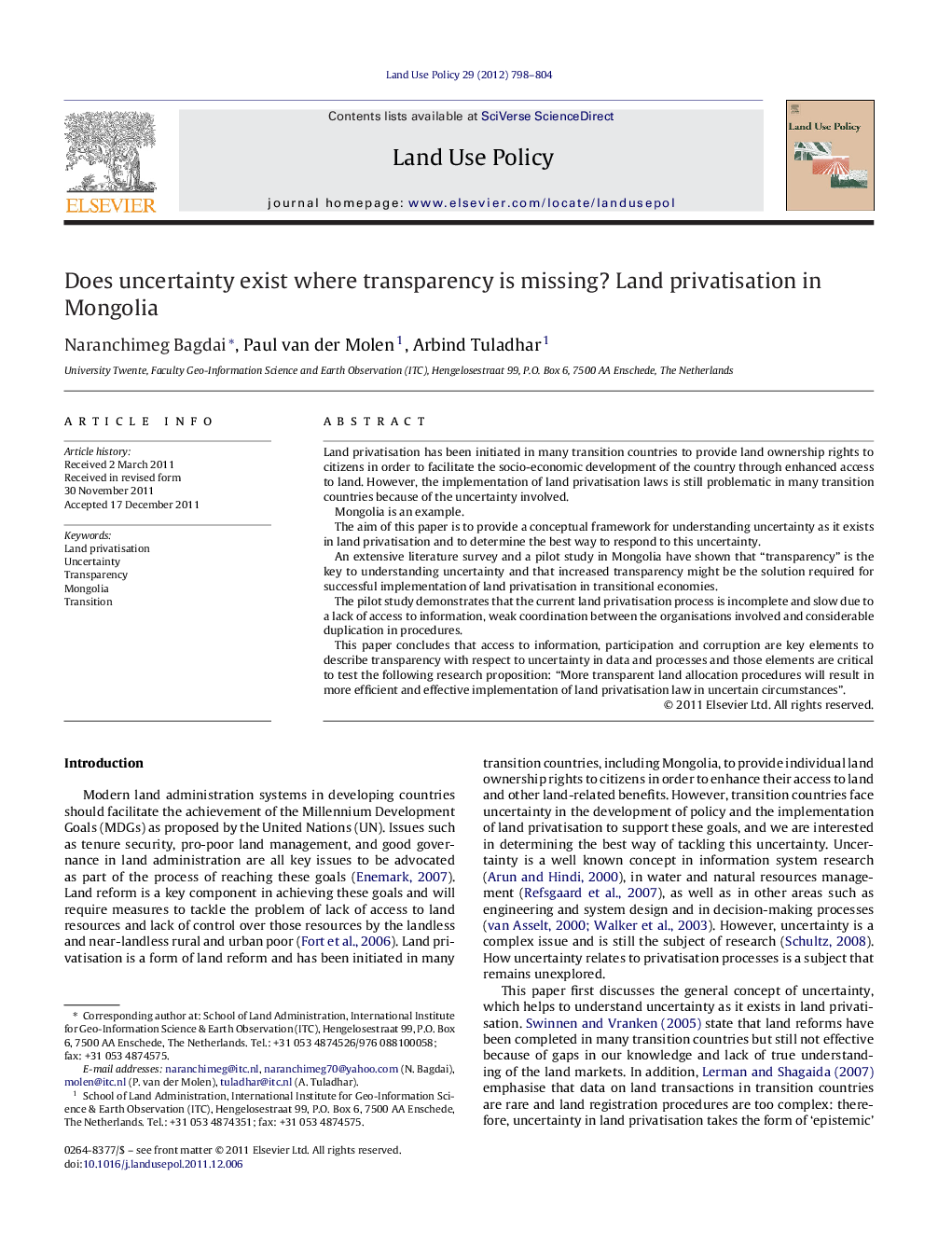| Article ID | Journal | Published Year | Pages | File Type |
|---|---|---|---|---|
| 93332 | Land Use Policy | 2012 | 7 Pages |
Land privatisation has been initiated in many transition countries to provide land ownership rights to citizens in order to facilitate the socio-economic development of the country through enhanced access to land. However, the implementation of land privatisation laws is still problematic in many transition countries because of the uncertainty involved.Mongolia is an example.The aim of this paper is to provide a conceptual framework for understanding uncertainty as it exists in land privatisation and to determine the best way to respond to this uncertainty.An extensive literature survey and a pilot study in Mongolia have shown that “transparency” is the key to understanding uncertainty and that increased transparency might be the solution required for successful implementation of land privatisation in transitional economies.The pilot study demonstrates that the current land privatisation process is incomplete and slow due to a lack of access to information, weak coordination between the organisations involved and considerable duplication in procedures.This paper concludes that access to information, participation and corruption are key elements to describe transparency with respect to uncertainty in data and processes and those elements are critical to test the following research proposition: “More transparent land allocation procedures will result in more efficient and effective implementation of land privatisation law in uncertain circumstances”.
► Transparency is an innovative approach to reduce uncertainty in data and processes when implementing land privatisation processes. From a theoretical perspective, a study of ‘transparency’ reveals that two elements are crucial for process design: access to information, participation. The existence of corruption can be considered as a negative consequence of a lack of transparency. A case study of Mongolia provides practical evidence.
